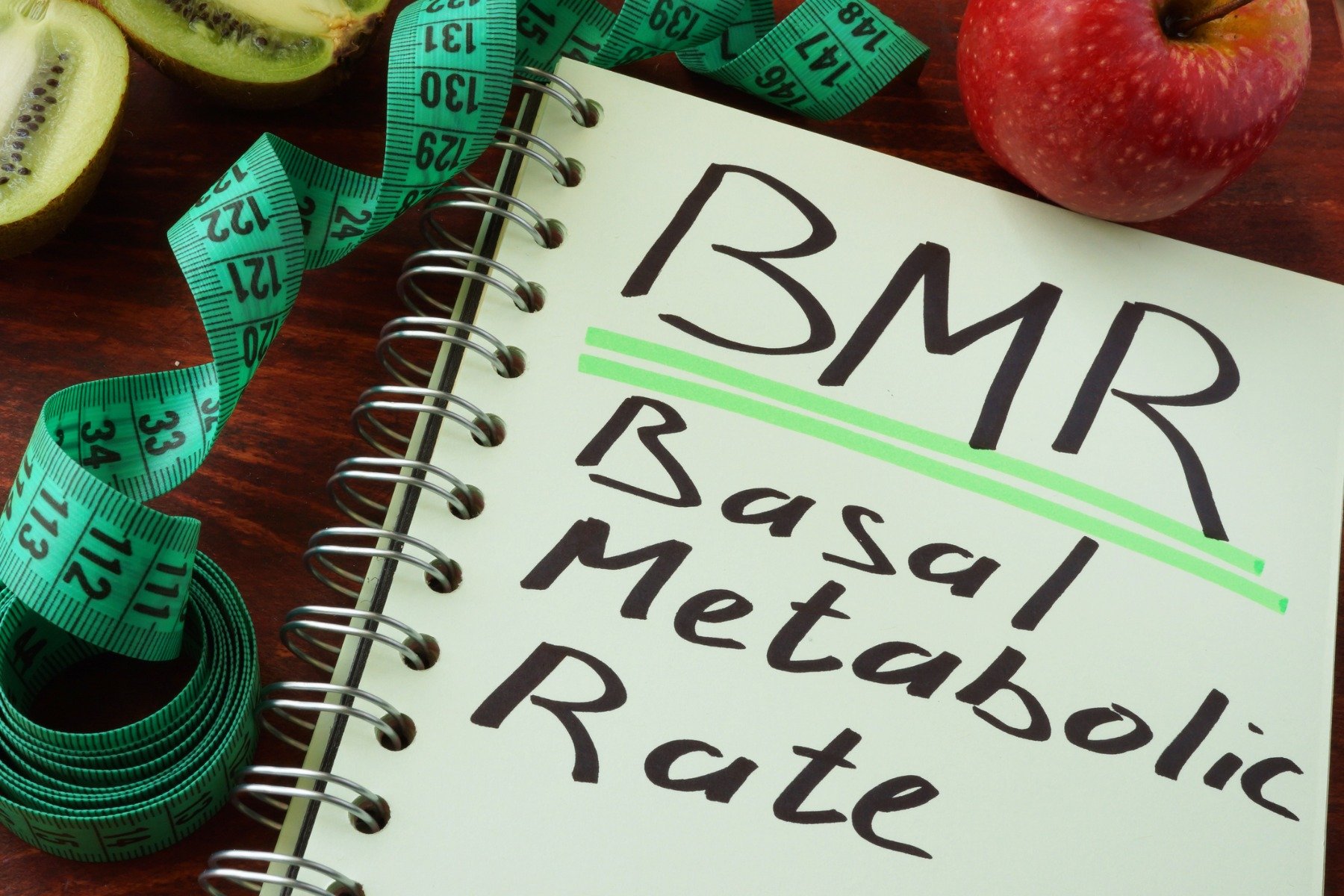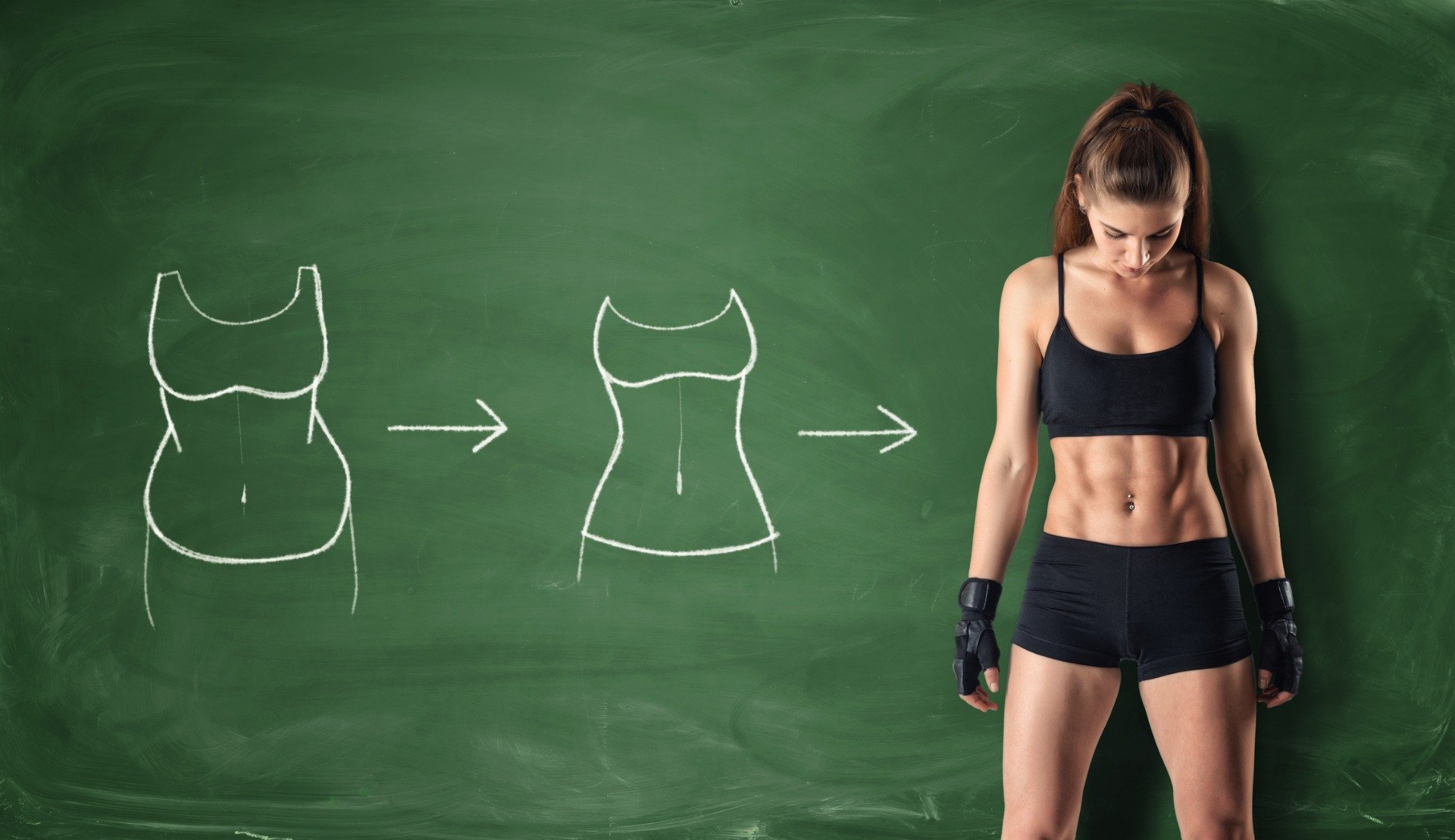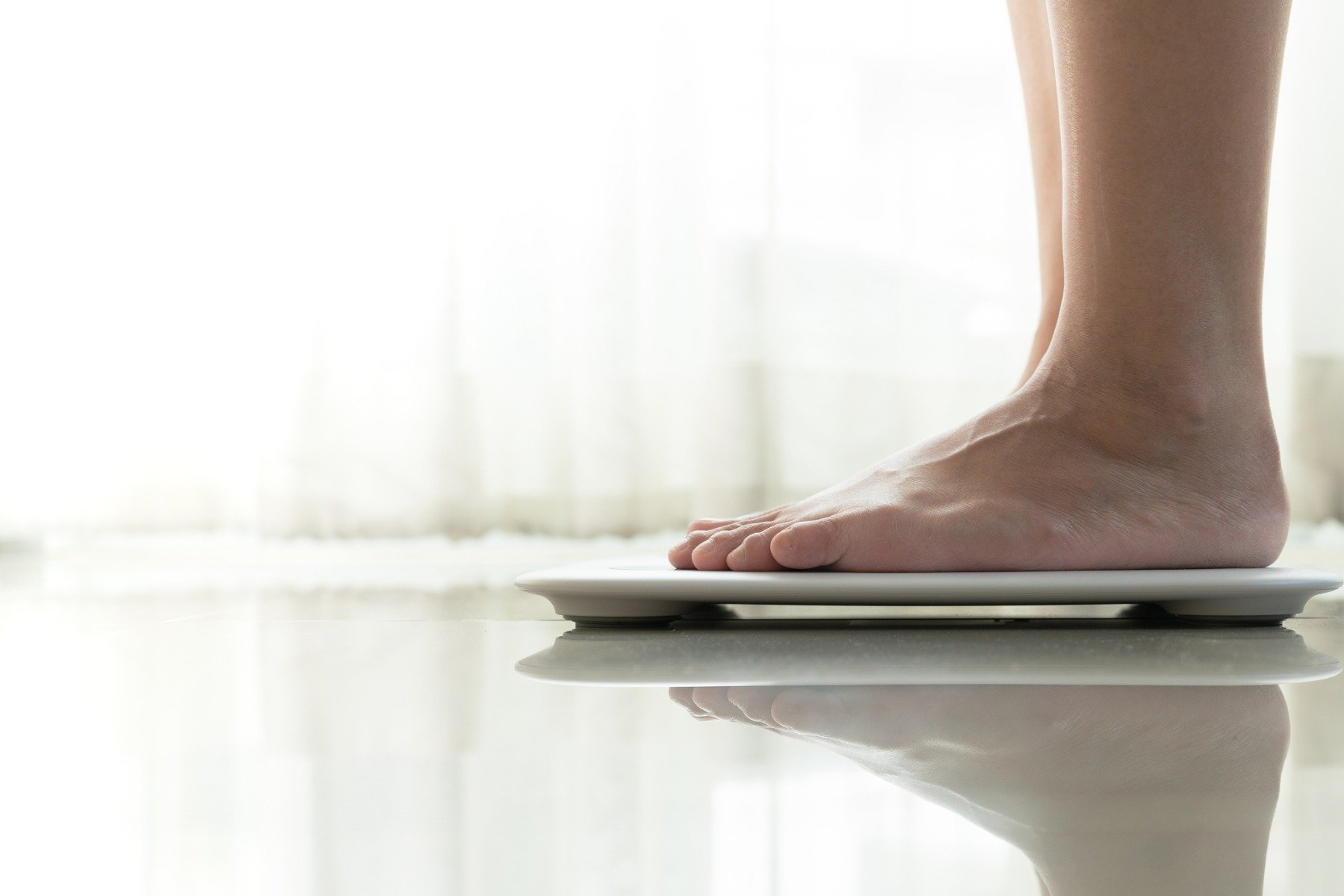Table of Contents
Basal metabolic rate (BMR) is a measure of the body’s energy expenditure at rest. It determines how many calories you need to take each day to maintain or reduce weight. This is the number of calories the body needs for the proper functioning of basic vital functions.

Metabolism and BMR
Metabolism is the set of all biochemical changes in living organisms and cells. The main purpose of metabolism is to convert food into the energy required for the function of cellular processes. It is also the transformation of food into building blocks of proteins, fats, some carbohydrates and elimination of nitrogen waste. [13]
Metabolism in living organisms is divided into primary and secondary:
- primary metabolism involves the basic chemical transformations upon which life and growth of the organism directly depend. These include, in particular, the metabolism of sugars, fats, amino acids and nucleic acids.
- secondary metabolism involves chemical processes in individual groups of organisms that produce and break down specific, non-proteinaceous chemicals. They can be various defenses, hormones, pigments and building molecules that form the skeleton of the body. [14]
The rate at which metabolism converts diet into usable energy is referred to as metabolic rate. The smallest amount of energy that the body needs to survive is called basal metabolic rate or BMR.
Basal metabolism (BMR) is an indication of how many calories a body needs to burn at rest to maintain its basic vital functions. In this state, energy is used only to maintain vital organs, including the heart, lungs, kidneys, nervous system, intestines, liver, lungs, genitals, muscles and skin. In general, BMR is determined precisely to reduce weight. To maintain a healthy weight, it is necessary to balance energy intake and expenditure. Once you know your BMR result, maintaining your balance is very easy. [1] [2]
The energy that the body burns during the day is called total daily energy expenditure (TDEE). It has three components: basal metabolism, heat effect of food and energy expenditure activity. These ingredients make up the exact daily energy requirement of the body. Paradoxically, the body consumes most calories and energy at rest, because each of the organs in our body is muscle. Muscles need a lot of energy for their function. [14] [15]
Let’s take a look at how many calories you burn in daily energy expenditure:
- basal metabolism – in this state you burn 60 to 75% of all calories every day
- thermogenesis activity (movement and exercise) – in this state you burn 15 – 30% of calories
- thermal effect of food (calories burned during digestion) – accounts for 10% of total calories burned each day [5] [11]

What is BMR good for?
Once you know your BMR, you know exactly how many calories you burn during the day at rest. With BMR you can determine how many calories you need to take to gain muscle mass, lose fat, or maintain weight. Simply put, if you know how many calories you take and burn, the way to your goal will be easier. How to do it?
- Do you want to keep your weight? Accept as many calories as you burn.
- Is your goal to gain weight? Accept more calories than you burn.
- Do you want to lose weight? Consume fewer calories than you burn. [2]
You can use the BMR calculator to figure out how many calories your body needs to take, or you can do it with equations. Note, however, that it is impossible to find out the exact value of BMR. The only way to get 100% BMR results is through laboratory testing. [1]
You might be interested in these products:
How to measure BMR?
Accurate laboratory measurement of BMR requires that the person’s nervous system is inactive, which means that one must be completely calm. A simpler and less time-consuming method of calculating BMR is by using equations created from statistics.
We know three kinds of equations. The first was the Harris-Benedict equation revised in 1984 and was used until 1990. At that time the Mifflin-St Jeor equation was introduced. It has proven to be much more accurate and is therefore still considered the best equation to calculate BMR and is also used in BMR calculators.
Later, Katch-McArdle formula, which differs from other equations in that it calculates the Resting Daily Energy Expenditure (RDEE), also takes into account muscle mass, from this equation. This equation may be more accurate for people who want to gain muscle mass and know their body fat percentage. [6]

Calculate BMR using three known equations, where:
- W is the body weight in kg
- H is the height in cm
- A is age in years
- F is the percentage of body fat [5]
1. Revised Harris-Benedict equation:
For men: BMR = 13,397 x W + 4,799 x H – 5,667 x A + 88,362
For women: BMR = 9,247 x W + 3,098 x H – 4,330 x A + 447,593 [3]
2. Mifflin-St Jeor equation – the most used equation in BMR calculators:
For men: BMR = 10 x W + 6,25 x H – 5 x A + 5
For women: BMR = 10 x W + 6,25 x H – 5 x A – 161
3. Katch-McArdle formula:
BMR = 370 + 21,6 (1 – F) x W

What is a daily calorie consumption?
The first step in calculating the amount of calories is to determine BMR using any of the three formulas we have introduced above. The second step is to multiply the resulting BMR by a physical activity coefficient that has 5 values:
- sedentary type – if you have little or no movement, multiply the BMR by 1.2.
- lightly active type – multiply your BMR by 1.375 if you exercise 1 to 3 days a week.
- moderately active type – multiply your BMR by 1.55 if you exercise 3 to 5 days a week.
- very active type – multiply your BMR by 1.725 if you exercise regularly for 6 to 7 days a week.
- extra active type – multiply your BMR by 1.9 if you are a professional athlete and regularly train 6 to 7 days a week or have a hard-physical job. [2]
The final figure represents the energy consumption and therefore the amount of calories you need to take each day to maintain your weight. If you want to lose weight, you should take fewer calories and vice versa if you want to gain more, you need to take more calories. [2]
Factors that affect BMR
However, a number of factors affect your resulting BMR, including:
- weight – people with higher weight achieve higher BMR results
- body composition – adipose tissue is known to have lower metabolic activity than muscle tissue. As muscle mass increases, metabolic rate also increases.
- gender – basal metabolism in men is on average 5 to 10% higher than in women. This is largely because women generally have more body fat and less muscle mass than men of similar size and weight.
- age – metabolism slows with age due to loss of muscle tissue, increase in adipose tissue, as well as hormonal and neurological changes.
- body temperature – with every 0.5 ° C increase in the body’s internal temperature, the BMR increases by about 7%. Chemical reactions in the body take place faster at higher temperatures.
- health – Diseases or injuries can double the metabolic rate, because the body uses a lot of energy to regenerate. [4] [7]

Your BMR is also affected by the intake of macronutrients and thus:
- fats increase BMR by 5%
- carbohydrates increase BMR by 5 to 10%
- proteins increase BMR by 20 to 30% [8]
What is the difference between BMR and RMR?
Often, the term BMR is confused with RMR. These are very similar definitions of basal metabolism, but they differ in some ways. BMR measures only the basic processes of your body, such as breathing, blood circulation, and temperature control in a completely restful state. RMR is a resting metabolism and measures the same processes as BMR but adds also measuring daily movements such as getting dressed and brushing teeth. Resting metabolism is usually measured in the morning before a meal or exercise and after a restful night of sleep. [1]
The definitions of RMR and BMR are almost identical. Your resting metabolic rate should be an accurate estimate of your basic metabolic rate. Because these concepts are similar, many weight loss professionals use both definitions to describe the same thing. They use the term ‘resting rate of metabolism’ for this. [5] [6]

BMR and daily calorie intake
As already mentioned, BMR determines the daily calorie intake you need to take in order for the body to function, also considering the level of physical activity. Keeping this calorie amount will maintain your current weight.
But what if you want to lose weight? In this case, the daily calorie intake should be lower than your BMR result. How much lower? The calculation is simple. If you want to lose 0.5 kg per week, reduce your intake by about 500 calories a day. [6]
For example, if you’re a 168 cm tall and 60 kg weighing 25-year-old woman with a 1,364 calorie BMR who exercises three days a week, you need 1,876 calories to maintain your weight. We calculated this on the basis of the BMR result multiplied by the formula: 1,364 x 1.375 = 1,876. If we subtract these 500 calories, the resulting calorie intake should be 1,376 kcal per day. Exactly so many calories a woman needs to take from our example to lose about 0.5 kg of her weight per week. [5]
However, according to the American College of Sports Medicine, women should not consume less than 1,200 calories and men not less than 1,800 calories per day. If, by subtracting these 500 calories, you get below these values, you should increase your calorie intake from a healthy diet and increase your physical activity. [9]
If you want to gain weight, you need to increase your calorie intake. Many experts argue that if you want to gain slow and steady, focus on an increase of 300 to 500 kcal per day. Conversely, if you want to gain weight quickly, increase your daily calorie intake by approximately 700 to 1,000 kcal. [9] For example, a 180 cm tall and 75 kg weighing 25-year-old man who works out three days a week needs 2,413 calories to maintain his weight. If they want to gain weight slowly and steadily, they should increase their daily calories by a maximum of 500 kcal. He would receive a maximum of 2,913 calories per day. [5]

Do you keep an eye on your calorie intake too? Do you rely on BMR calculation or do you use another form of calorie intake? Please write your answers in the comment. If you’ve learned any new and interesting information from the article, give it a like and support it by sharing.
[1] https://www.bodybuilding.com/fun/bmr_calculator.htm
[2] Stacy Sampson, DO - What Is Basal Metabolic Rate? – https://www.healthline.com/health/what-is-basal-metabolic-rate
[3] http://www-users.med.cornell.edu/~spon/picu/calc/beecalc.htm
[4] Robert G. McMurray - Examining Variations of Resting Metabolic Rate of Adults: A Public Health Perspective – https://www.ncbi.nlm.nih.gov/pmc/articles/PMC4535334/
[5] https://www.calculator.net/bmr-calculator.html
[6] Malia Frey - Calculate Your Basal Metabolic Rate to Lose Weight – https://www.verywellfit.com/what-is-bmr-or-basal-metabolic-rate-3495380
[7] Dr. Michael T. Murray, ND - What are the factors that influence basal metabolic rate (BMR)? – https://www.sharecare.com/health/how-the-metabolic-process-works/factors-influence-basal-metabolic-rate
[8] Metabolism – https://www.betterhealth.vic.gov.au/health/conditionsandtreatments/metabolism
[9] Mayo Clinic Staff - Counting calories: Get back to weight-loss basics – https://www.mayoclinic.org/healthy-lifestyle/weight-loss/in-depth/calories/art-20048065
[10] Weigle DS - Appetite and the regulation of body composition. – https://www.ncbi.nlm.nih.gov/pubmed/8143936
[11] Reed GW - Measuring the thermic effect of food. – https://www.ncbi.nlm.nih.gov/pubmed/8561055
[12] Villablanca PA - Nonexercise activity thermogenesis in obesity management. – https://www.ncbi.nlm.nih.gov/pubmed/25841254
[13] Atli Arnarson, PhD - Fast Metabolism 101: What It Is and How to Get It – https://www.healthline.com/nutrition/get-a-fast-metabolism
[14] Mayo Clinic Staff - Metabolism and weight loss: How you burn calories – https://www.mayoclinic.org/healthy-lifestyle/weight-loss/in-depth/metabolism/art-20046508
[15] Kamal Patel - Is my “slow metabolism” stalling my weight loss? – https://examine.com/nutrition/is-my-slow-metabolism-stalling-my-weight-loss/


Add a comment